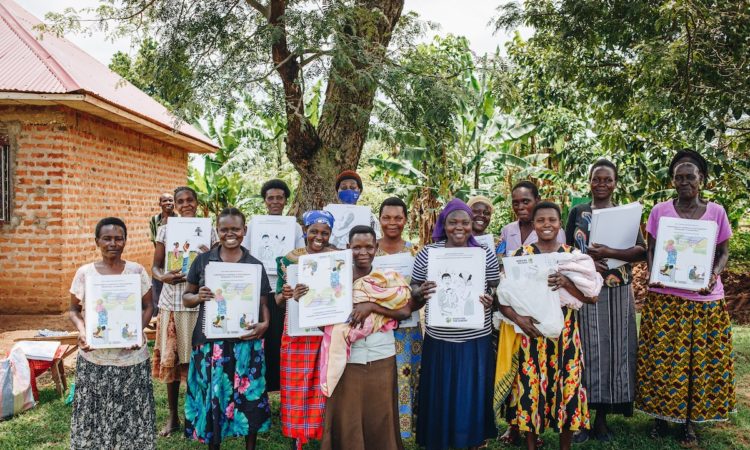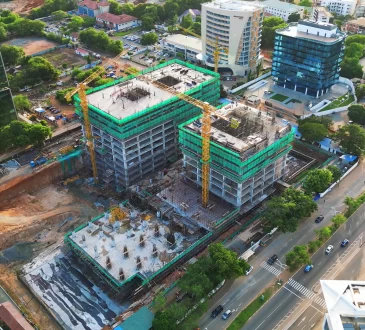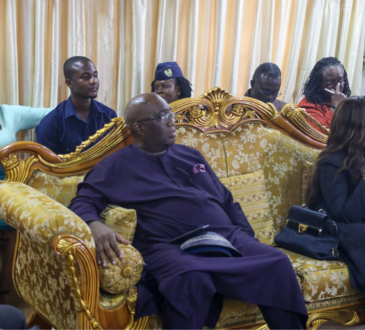
As rates of childhood malnutrition rise to staggering levels due to the COVID-19 pandemic and an emerging global food security crisis, there is an effective way to give children a nourishing start to their lives and greater protection from disease and illness. Indeed, one of the most significant and beautiful gifts a new mother can give to her child is breastfeeding.
On this global celebration of World Breastfeeding Week, I want to add my voice to the conversation on the importance of breastfeeding and speak from my heart as a mother and advocate regarding the lifesaving difference of this most personal act.
This year’s theme, Step Up for Breastfeeding: Educate and Support, reflects the two primary priorities of FH’s breastfeeding programs, goals which are inextricably linked. Having grown up in Zimbabwe and worked throughout my career to build thriving communities, I know mothers want the best information to give their children a healthy start. And as any mother with a newborn can attest, they need support. What often serves as a barrier to these goals is a lack of information regarding the many benefits of breastfeeding.
At Food for the Hungry, we employ an innovative model in communities around the world that educates, equips, and mobilizes groups of 10 to 15 mothers to implement breastfeeding best practices in their own lives, and then share their knowledge and support neighbors, family, and friends to do likewise. We call these care groups, and by leveraging social networks within communities, we work to provide resources, build capacity, and create enabling environments for optimal, evidence-based breastfeeding. This includes early initiation of breastfeeding, exclusive breastfeeding for the first six months of life, and continued breastfeeding alongside nutritious complementary foods for up to two years and beyond. Through this care group model information and knowledge is shared among mothers. I can’t imagine a better way for a new mum to learn than from someone she knows and trusts – another mum in her own community.
The evidence is clear that breast milk provides optimal nutrition for babies. It contains a perfect blend of essential nutrients, vitamins, and minerals, as well as critical antibodies that strengthen a baby’s immune system and protect against deadly diseases like diarrhea and respiratory infections. It supports optimal physical and cognitive development. And breast milk provides truly personalized nutrition, changing composition though an amazing, dynamic biofeedback process that ensures each baby’s specific needs are met.
Nursing mothers benefit, too, with breastfeeding shown to significantly reduce the risk of breast and ovarian cancers. Scaling up optimal breastfeeding practices could have an enormous impact, saving the lives of an additional 823,000 children and 20,000 women each year. Still, while progress has been made over the last decade, currently less than half of babies globally are exclusively breastfed for the first six months of life.
But by partnering with women in communities around the world to share knowledge, address common breastfeeding challenges, and create environments that enable women to meet their breastfeeding goals, we can increase the number of babies who are breastfed. Working in local communities across the globe allows us to walk alongside the most vulnerable as sisters and friends, sharing our experiences and encouraging sustainable solutions.
We know that breastfeeding is critical in addressing the double burden of malnutrition by increasing food security and reducing inequality. The accessibility and affordability of breastfeeding make it a powerful tool in the fight against injustice and poverty. We also know that breastfeeding, a most personal decision, cannot and does not happen in a vacuum. Support systems must create an enabling environment for optimal breastfeeding, and that is why this year’s World Breastfeeding Week focuses on strengthening systems to scale up breastfeeding and builds the capacity and adaptability required for resilient individuals, families, and communities.
May this World Breastfeeding Week be a call to action on behalf of the most vulnerable babies and mothers around the globe. Let us commit to working passionately, creatively, and urgently to strengthen breastfeeding capacity and support mothers and babies everywhere.
Rudo Kayombo is Chief Operations Officer at Food for the Hungry and currently lives in the Democratic Republic of the Congo. She joined the organization in 2020, bringing more than 20 years of experience working in international development. She and her husband are the proud parents of six children.
Food for the Hungry is a Christian humanitarian organization providing life-changing development programs, disaster relief, and advocacy since 1971. Inspired by our belief that every person has intrinsic value and inestimable worth, we seek to end all forms of poverty and combat injustice by going to the hard places and humbly walking with the world’s most vulnerable people.
Through context-specific agriculture, health and nutrition, clean water, education, and disaster risk reduction programs, Food for the Hungry builds resilience and transforms lives. In 2021, we provided emergency and humanitarian relief to 3.1 million people and impacted over 10 million lives through our development programs. With over 99% of staff serving in their country of origin, Food for the Hungry develops sustainable, locally led solutions to fight poverty and injustice. For more information, follow FH on Twitter, Instagram, and Facebook, or visit www.fh.org.







